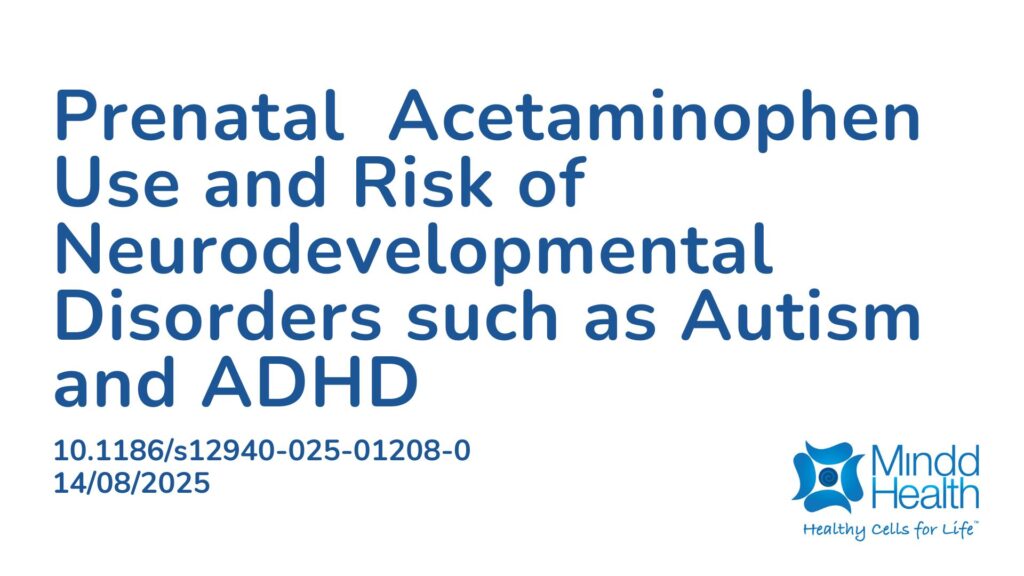Summary:
Pregnancy is a period of rapid brain development, during which the fetus is highly sensitive to environmental exposures. Even temporary disruptions during this time can have long-term effects on neurodevelopment. Neurodevelopmental disorders (NDDs), such as autism spectrum disorder (ASD) and attention-deficit/hyperactivity disorder (ADHD), often originate in pregnancy but are diagnosed in childhood when developmental milestones can be assessed. Acetaminophen, also known as paracetamol, is widely used during pregnancy because it is considered safer than other medications. More than 60% of pregnant women report using it. Despite its widespread use, concerns have emerged about possible links between prenatal exposure and later risk of NDDs. Previous systematic reviews and meta-analyses have explored this association, but results have been limited by bias. To address these limitations, this study evaluated prenatal acetaminophen exposure and neurodevelopmental outcomes. A systematic search identified 46 relevant studies. Of these, 27 reported significant associations with NDDs, nine reported no association, and four reported protective effects. Overall, the evidence indicates a consistent association between prenatal acetaminophen use and increased risk of NDDs in offspring. These findings suggest the need for caution in recommending acetaminophen during pregnancy and highlight the importance of advising pregnant women to limit its use to protect fetal brain development.
Abstract:
Background: Acetaminophen is the most commonly used over-the-counter pain and fever medication taken during pregnancy, with > 50% of pregnant women using acetaminophen worldwide. Numerous well-designed studies have indicated that pregnant mothers exposed to acetaminophen have children diagnosed with neurodevelopmental disorders (NDDs), including autism spectrum disorder (ASD) and attention-deficit/hyperactivity disorder (ADHD), at higher rates than children of pregnant mothers who were not exposed to acetaminophen. Methods: We applied the Navigation Guide methodology to the scientific literature to comprehensively and objectively examine the association between prenatal acetaminophen exposure and NDDs and related symptomology in offspring. We conducted a systematic PubMed search through February 25, 2025, using predefined inclusion criteria and rated studies based on risk of bias and strength of evidence. Due to substantial heterogeneity, we opted for a qualitative synthesis, consistent with the Navigation Guide’s focus on environmental health evidence. Results: We identified 46 studies for inclusion in our analysis. Of these, 27 studies reported positive associations (significant links to NDDs), 9 showed null associations (no significant link), and 4 indicated negative associations (protective effects). Higher-quality studies were more likely to show positive associations. Overall, the majority of the studies reported positive associations of prenatal acetaminophen use with ADHD, ASD, or NDDs in offspring, with risk-of-bias and strength-of-evidence ratings informing the overall synthesis. Conclusions: Our analyses using the Navigation Guide thus support evidence consistent with an association between acetaminophen exposure during pregnancy and increased incidence of NDDs. Appropriate and immediate steps should be taken to advise pregnant women to limit acetaminophen consumption to protect their offspring’s neurodevelopment.
Article Publication Date: 14/08/2025
DOI: 10.1186/s12940-025-01208-0



